The Ernest Cornwall Cup is a reminder of sporting prowess at LSE from the 1930s to the 1960s, writes LSE Archivist Sue Donnelly.
Sport was a significant aspect of LSE life between the two world wars. William Beveridge, LSE Director from 1919 to 1937, was a keen badminton and tennis player and oversaw the purchase of the School’s sports ground at New Malden, with the annual summer sports day becoming a major event in the School Calendar. The importance of sport is reflected in the large number of sports cups that were donated to the School.
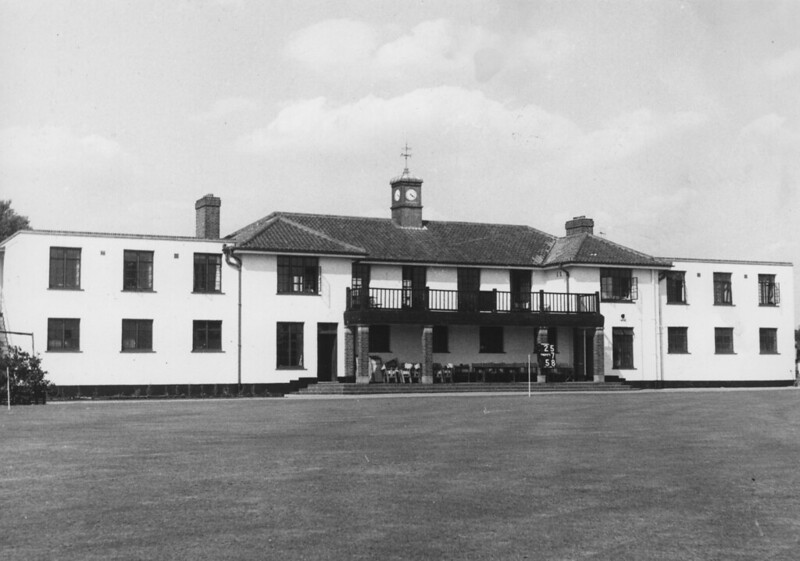
During the 1920s LSE built up a collection of sports cups. However several were stolen in 1930 so the School was keen to rebuild its collection. In May 1937 the School Secretary, Jessy Mair, wrote to Sir Ernest Cornwall to inform him that the School had purchased a silver cup from the London showroom of Messrs Cooper Brothers and Sons Ltd, a Sheffield producer of silver and electroplated cutlery and cups. The cup had cost £9 13s.
Sir Ernest Cornwall (1875-1966) was appointed a governor of the School in 1936-1937 and was the Chief General Manager of the National and Provincial Bank. Cornwall was born in Lapford, Devon and joined the Whitchurch branch of the National Provincial Bank in London as an apprentice in 1892 completing his Institute of Bankers exams in 1896. He rose steadily through the ranks and worked in Manchester, Leeds, Hull and Sunderland. He returned to London as the Deputy Head of the Advance, Security and Inspection Department where he was responsible for distributing Treasury-issued bank notes during the First World War. He was appointed Chief General Manager in February 1934 and on his retirement in 1945 was elected a Director, continuing to serve until his death in 1966. In Who’s Who his interests include motoring and golf.
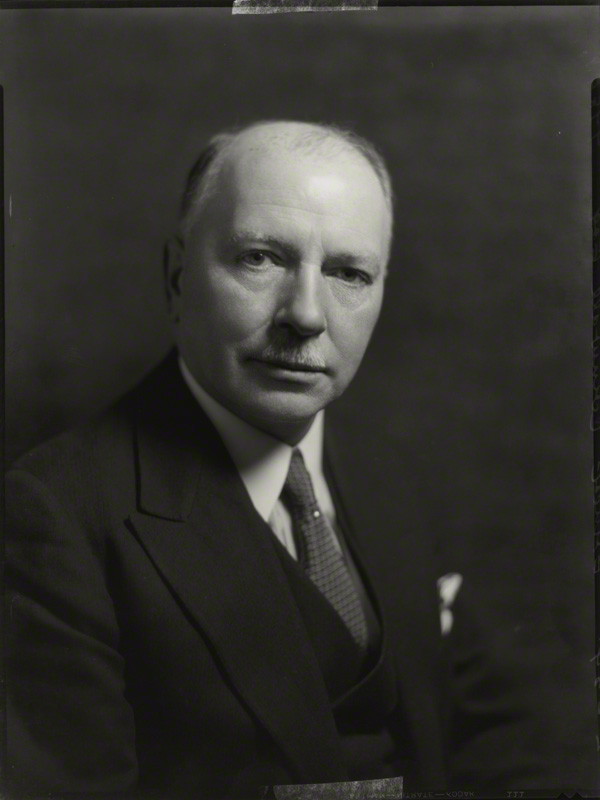
After discussions with the Presidents of the Students and Athletics Unions Jessy Mair informed Cornwall that the cup was to be awarded to the sports club which had contributed most to the sporting life of the School by a committee drawn from the Students Union and Athletics Union. The committee would assess performance in intercollegiate competitions and levels of student participation.
The Lacrosse Club was the first winner in 1937/1938 captained by Stella Foord, who graduated the same year with a BSc (Economics) degree. On hearing of the Soccer Club’s success in 1940/1941 Cornwall wrote: “It is all to the good and will keep them out of mischief as well as build them up physically.” The cup was not awarded for the middle three years of the war but the Table Tennis Club won in 1944/1945.
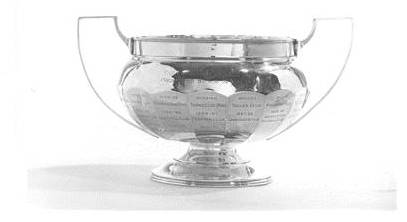
After the Second World War the annual sports day was discontinued but the Ernest Cornwall Cup continued to be awarded until 1963 when the Table Tennis Club won the trophy for the fourth time. In 1953 the President of the Athletics Union suggested that a member of staff join the judging committee and that with the demise of sports day prizes be awarded at Oration Day. The Director accepted the first suggestion but felt that Oration Day was not a suitable event for prize giving.
In the 1950s and early ’60s winners included the Fencing Club (1956/1957), the Squash Club (1959/1960) and Basketball Club (1960/1961). Today there are no presentation ceremonies but the cup remains as a reminder of LSE’s earlier sporting days.


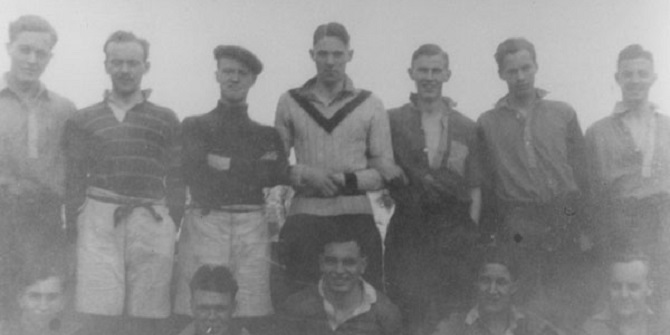
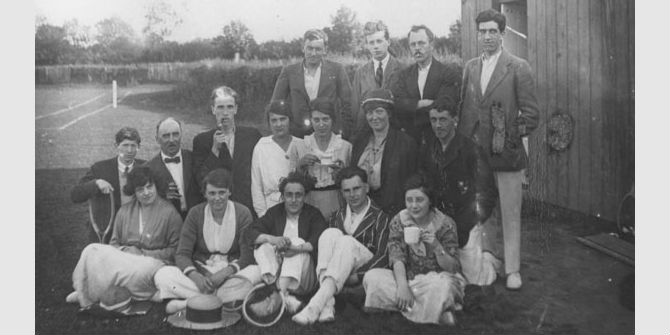

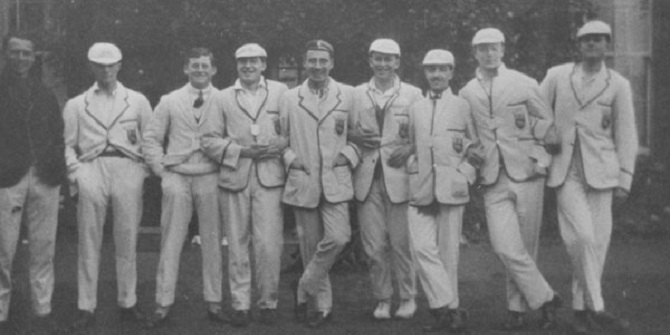
At LSE 1956-1959, Rugby Club and Squash Club. I have a memory of a very informal sports day, al fresco, organised by mainly the Soccer Club, I think. There were some things to be won. I recall Lady Caine presenting them to winners, a charming lady. For some reason the Student Union would have nothing to do with it. But there was an antipathy between the Union politico’s and the sporting fraternity. Some of the latter had been in the services and many in the Rugby Club were Welsh from the mining districts.